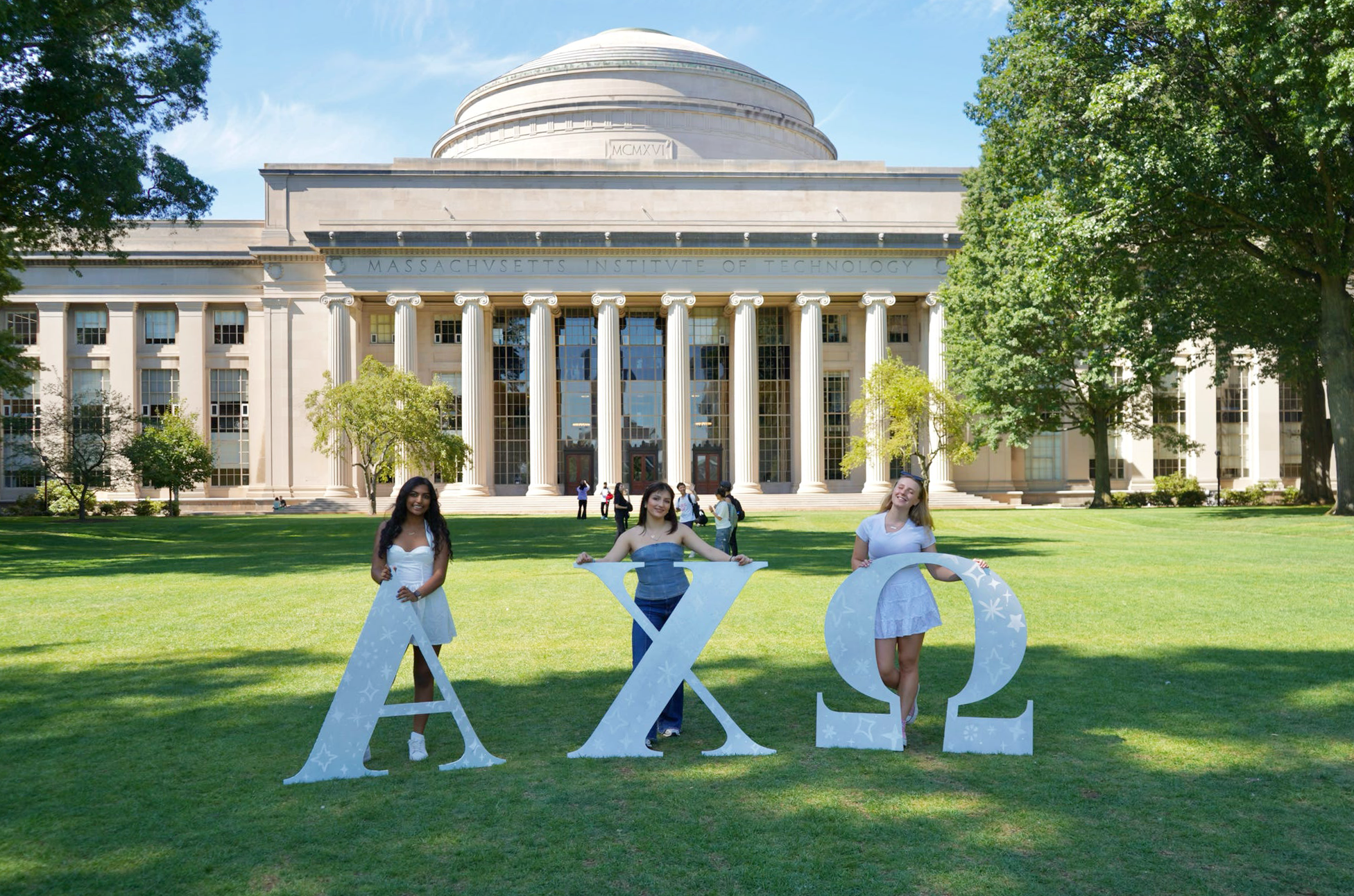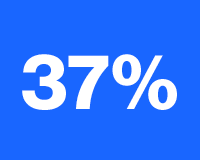
Lucy Kanias, center, with her Alpha Chi Omega sisters Megha Vemuri '25 (left) and Elizabeth Jackson '27 (right) at a sorority event.
PHOTO: COURTESY OF LUCY KANIAS
As a participant in Seren, a government initiative designed to encourage talented Welsh students to apply to top-notch universities at home and abroad, she had access to enrichment opportunities and special programming. One Zoom session during the pandemic featured international students at MIT who were invited to talk about the application process and life at the Institute.
“The students there just seemed so grateful and enthusiastic and excited about the work they were doing,” Kanias recalls. She was thrilled to be accepted to MIT and was offered financial support as a John Psarouthakis and Elizabeth Paleologou Scholar. John Psarouthakis ’57 SM ’62 was a native of Crete who emigrated to the United States to attend MIT and went on to become a successful engineer and entrepreneur. He endowed a scholarship fund that gives preference to students of Greek descent, like Kanias.
“There was no chance I could have come without the scholarship,” she explains. “My parents have had a lot of hiccups whilst I’ve grown up, especially health issues related to my dad. That’s been a massive help, not having to worry about my parents supporting me through college.”
New friends and colleagues
Majoring in chemical engineering (Course 10), Kanias explored lithium extraction for sustainability through an Undergraduate Research Opportunities Program in the lab of John Lienhard, the Abdul Latif Jameel Professor of Water and Mechanical Engineering and founding director of the Abdul Latif Jameel Water and Food Systems Lab. She was supervised by former MathWorks Fellow Zi Hao Foo SM ’21, PhD ’24, now a postdoctoral fellow at the University of California, Berkeley, whom she describes as “one of those mentors who really encouraged me and had trust.” Recalling her lack of confidence when she first arrived at MIT, Kanias says gratefully, “He made me feel capable, even when I doubted myself.” She notes that the group in Lienhard’s lab grew so close that they all traveled to Singapore for Foo’s wedding.

Approximately 37% of the undergraduate student body belongs to one of MIT’s 43 FSILGs.
Kanias has also formed lasting relationships through her sorority, Alpha Chi Omega (AXO), founded in 1885 at DePauw University. The Theta Omicron Chapter of AXO was founded 100 years later at MIT with the motto Real.Strong.Women. This year, Kanias serves as the chapter’s president. Learning about AXO during an orientation for international students, she says, “It seemed like a perfect opportunity for me. I’m used to having a massive family at home, and it was nice to join an even bigger community!”
“One of the most meaningful traditions for me is AXO Fondue Night,” Kanias says. “Members invite faculty and alumni to our house on Commonwealth Avenue, which creates an informal yet special space to foster connections between AXO and the wider MIT community.” The sorority members also organize events designed to raise awareness of domestic violence and volunteer at the Boston Marathon each spring.
A global education
Kanias has taken full advantage of international learning opportunities during her undergraduate years, largely through the MIT International Science and Technology Initiatives (MISTI). Through Global Teaching Labs, one of MISTI’s core programs, she taught chemistry to high school students in Bremen, Germany, and had summer research positions at Graber Lab for Energy Research in Berlin and at Ucaneo, a German company that develops direct air capture technology to remove carbon dioxide from the atmosphere.
In the 2025–26 academic year, Kanias is part of the new Undergraduate Fellows Program at the MIT Center for International Studies. “I’m working with Phil Budden in the MIT Management Department, who has Welsh heritage, which made the connection especially meaningful for me,” she says. “Being accepted into this fellowship feels significant, as it represents MIT’s efforts to collaborate not just on campus but also globally.” As part of the program, she will contribute to curriculum development for the MIT Regional Entrepreneurship Acceleration Program, a global initiative that engages with communities around the world to strengthen innovation-driven entrepreneurial ecosystems.
Now in her senior year, Kanias is considering a wide range of options after graduation, applying for climate-focused jobs both in the United States and Germany. “I think the main thing is having an open mind because that’s what got me to MIT in the first place. The main thing that motivates me is just to feel like I’m doing good in the world more than anything.”
SUPPORT SCHOLARSHIPS AT MIT
MIT is committed to meeting the financial needs of its undergraduates, ensuring that every student who accepts an offer of admission has the resources and support to thrive. There are many ways to support our undergraduates. Learn how.